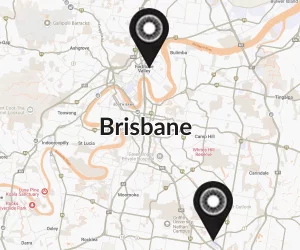
What are the lens replacement surgery risks and complications?
Lens replacement is a low-risk and effective procedure, with 95% of patients achieving driving-standard vision or better1https://www.optimax.co.uk/lens-surgery/. However, as with all surgeries, there are risks and possible side effects.
There’s no procedure out there that is completely risk-free. For example, 1 in 10,0002https://www.alexshortt.co.uk/what-are-the-lens-replacement-risks-vp/#single/0 patients undergoing refractive lens exchange may experience total vision loss. Furthermore, the risk of this happening to both eyes is 1 in 12 million.
So as you can see, these are extremely low figures, but you need to understand the full spectrum of risks that may occur with this procedure. Below, we list some possible lens replacement surgery risks, side effects and complications.
Seeing glare or halos
Glared rings of light at night time are common after refractive lens exchange surgery (and more common with multifocal lenses) but are nothing to worry about. This natural response to the focal points within your new lenses can last a few days to a few months.
Over time, your brain gets used to the lenses’ different power zones, and you will adjust to your new way of seeing, known as neuroadaptation.
Some patients need a ‘top-up’ procedure
For a few patients, the focus of the new lens isn’t exact, despite seeing much better than they did before the surgery. Some people may still have vision problems after the surgery. In this case, we would correct this with a simple laser procedure.
Experiencing dry or red eyes
Some patients may feel dry or red eyes post-surgery. This is a normal response that shouldn’t be painful. The redness will disappear after a few weeks, and you can correct the dry eyes with regular eye drops.
Although rare, some patients experience infection after surgery
The chance of this happening is significantly low, with 0.05% of patients experiencing severe infection after having lens replacement surgery. If this does occur, they should contact their surgeon immediately. Any pain or loss of vision should also be reported at once.
If you have any concerns about lens replacement surgery’s side effects or risks, feel free to speak to us. You can book an initial assessment here.
ARE YOU SUITABLE?
Check your laser eye surgery suitability online with our free LASIK self-test
OUR MOST POPULAR PROCEDURES

Hi, I’m Dr. Matthew Russell, a laser and cataract surgeon
HI I’M DR. MATTHEW RUSSELL A LASER EYE AND CATARACT SURGEON
With over 15 years of experience, I enjoy the privilege of helping patients of all ages reclaim clear vision or preserve it for as long as possible.
Vision correction and high-precision cataract surgery hinge on the expertise and skill set of the provider who also has access to the most precise tools for the job. Ophthalmic surgeons like me know how to make treatment safe, comfortable and positive for the patient. They know how to minimise the risk of complications and maximise successful outcomes.
I have a passion for helping my patients enjoy the clear, high-definition vision they need to live rich and active lives. Now, I have hand-picked a team of professionals that share my passion and commitment to exceptional care.
Dr. Matthew Russell
MBChB, FRANZCO





